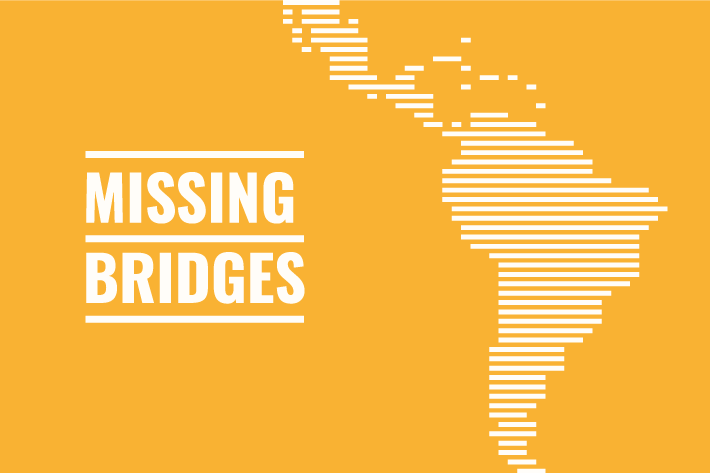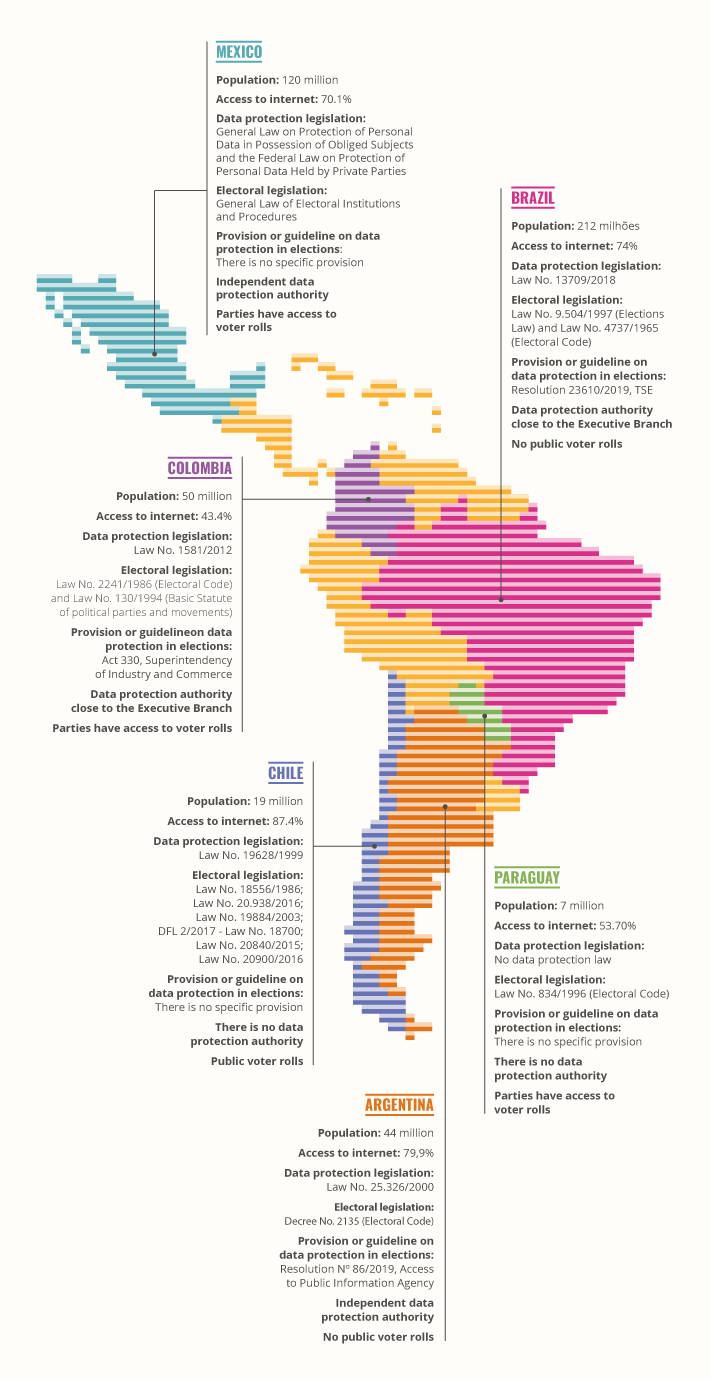
New report from InternetLab maps legal landscape on political campaigns use of data in Latin America
In a new report, InternetLab examines the regulation of data processing in the electoral context in Argentina, Brazil, Chile, Colombia, Mexico and Paraguay. Findings highlight issues hindering the enforcement of a data protection framework to campaigns in the region.
Recent elections have been plagued by allegations of voter manipulation and abuse of personal data, particularly with reports of the involvement of the infamous Cambridge Analytica going much beyond the 2016 US presidential elections. In Latin America, with internet access on the rise, the region has seen a greater use of personal data for electoral campaigning.
In Brazil, during the 2018 elections, there was extensive media coverage of the use of bulk messaging via WhatsApp, which raised questions regarding the origin of the data. In Colombia, the case of the app Kontacto gained notoriety for the irregular collection and processing of personal data from voters in the city of Pereira. City officials were caught entering citizen data in the app to benefit the incumbent’s campaign in the mayoral elections. The region also saw reports of irregular data processing in Chile, Mexico, and elsewhere.
A new report from InternetLab presents the findings of a study on the regulation of the use of personal data in electoral campaigns in Latin America. “Missing bridges: a comparative analysis of legal frameworks governing personal data in political campaigning in Latin America” is the result of a research project in partnership with CYRILLA. Adopting the CYRILLA methodology for mapping legal landscapes, we examined the electoral and data protection framework of six Latin American countries: Argentina, Brazil, Chile, Colombia, Mexico, and Paraguay. In addition, we interviewed researchers from digital rights organizations in each of the jurisdictions to help us understand the main practices and regulatory gaps.

A key takeaway from the report is that enforcement of data protection in the electoral context faces three main challenges:
- a lack of coordination by electoral and data protection authorities, leading to neither regarding itself as responsible;
- concerns over the independence of authorities that lack autonomy from the executive or partisan politics; and
- a serious lack of information about campaign use of personal data and the role of data in digital campaigning — transparency requirements, where present, are limited to expenditures and official account registration.
With campaigns increasingly adopting digital strategies, data protection is key to ensuring that the electoral process is fair. At the same time, the employment of these tools may pose risks both in terms of voter manipulation and privacy violations, besides threatening the integrity of the electoral process. The regulation of campaign data as such must be thought of as building bridges, an issue pertaining both to privacy and to making sure elections are open and fair.
